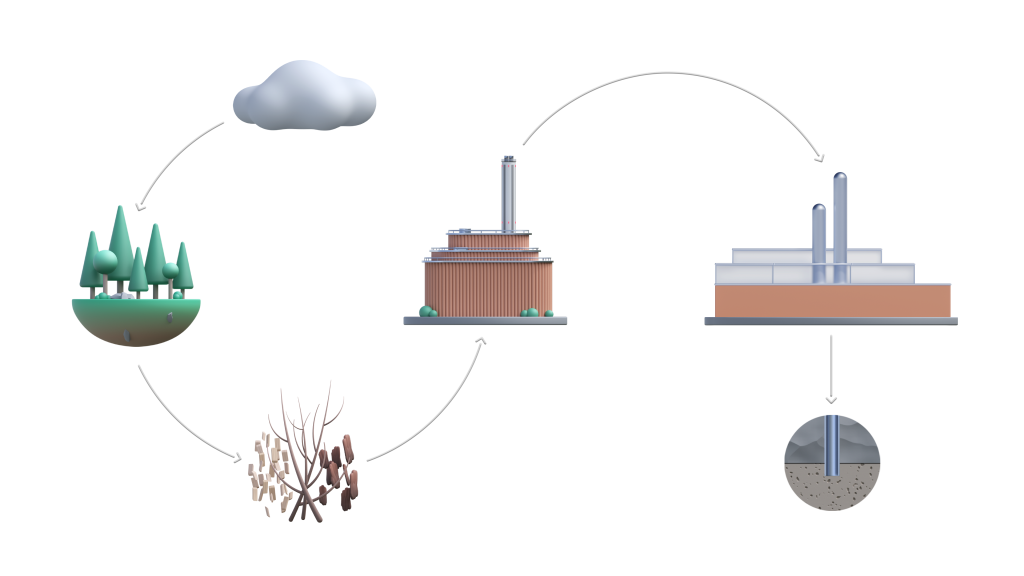

Bio-energy with Carbon Capture and Storage (BECCS). Stockholm Exergi is one of the first companies in the world to develop a model for enabling the shift from reduced carbon dioxide emissions to negative emissions.
As part of its research and development activities, Stockholm Exergi is working on how BECCS can make a substantive contribution to supporting national and international climate goals.
BECCS is one possible way of slowing global warming and ultimately rebalancing the climate sustainably. Stockholm Exergi’s calculations show that there is potential to capture 800,000 tonnes of carbon dioxide per year at our bio-cogeneration plant in the Värtan area of Stockholm. Combine this with the rest of Stockholm and other companies’ operations, the potential is even greater, amounting to two million tonnes per year, which is approximately twice as much as the carbon dioxide emissions from all car traffic in Stockholm.
Stockholm Exergi’s plans for a BECCS plant at the biofuel-fired CHP plant in Värtan are becoming increasingly well defined. In December 2019, we inaugurated our research facility. The goal is that the research facility, together with an ongoing integration study, will provide sufficiently robust results to form the basis for Stockholm Exergi to invest in a large-scale facility.

BECCS is a more cost-effective technology for reducing carbon dioxide than many alternatives. But despite BECCS being effective in terms of the amount of carbon dioxide that can be reduced, the costs associated with implementation of the technology at a plant are high. Therefore, updated regulations and new economic instruments are needed to enable the creation of large carbon sinks. Stockholm Exergi’s assessment is that if BECCS is given the right conditions, it can function as carbon sinks which are set to be crucial to preventing global warming from exceeding two degrees Celsius.
In the years since the 2015 COP21 meeting in Paris, the need to create carbon sinks has become increasingly widely accepted. In Sweden, seven of the eight parliamentary parties have expressed their support for the goal of reaching zero emissions of greenhouse gases by 2045 and that emissions thereafter should be negative.
A Swedish parliamentary committee was commissioned by the government to draft a strategy for how Sweden can achieve negative greenhouse gas emissions after 2045. The committee published findings and proposals in its Road to a Climate Positive Future report in January 2020. In addition to extensive reductions in carbon dioxide emissions, the report states that other measures will be needed to achieve the 2045 target. One of the cited measures is BECCS.
The authors of the report consider BECCS as a cost-effective measure to achieve the long-term target. They argue that Sweden is well-positioned to develop the technology and go on to outline how it could be implemented.
After the proposals were published, some 100 bodies submitted comments during the spring consultation round. The conclusion is that strong support exists among the consultation bodies for investing in BECCS in Sweden.
The next step in this process will be for Sweden’s Ministry of the Environment to conduct a final review before the government can present a bill to parliament.
For more information about Stockholm Exergi BECCS project